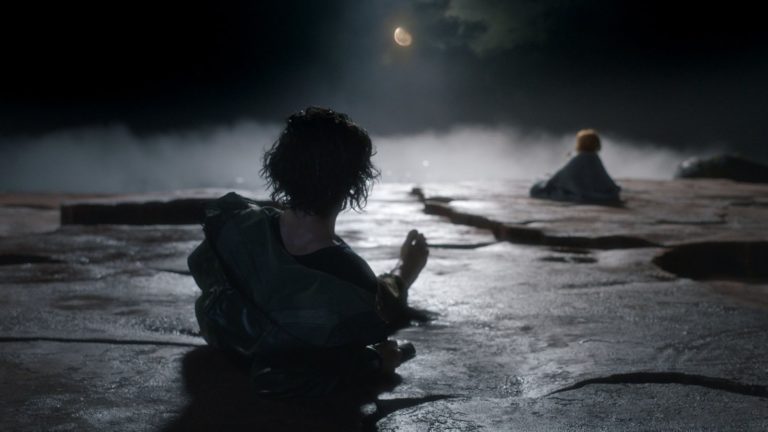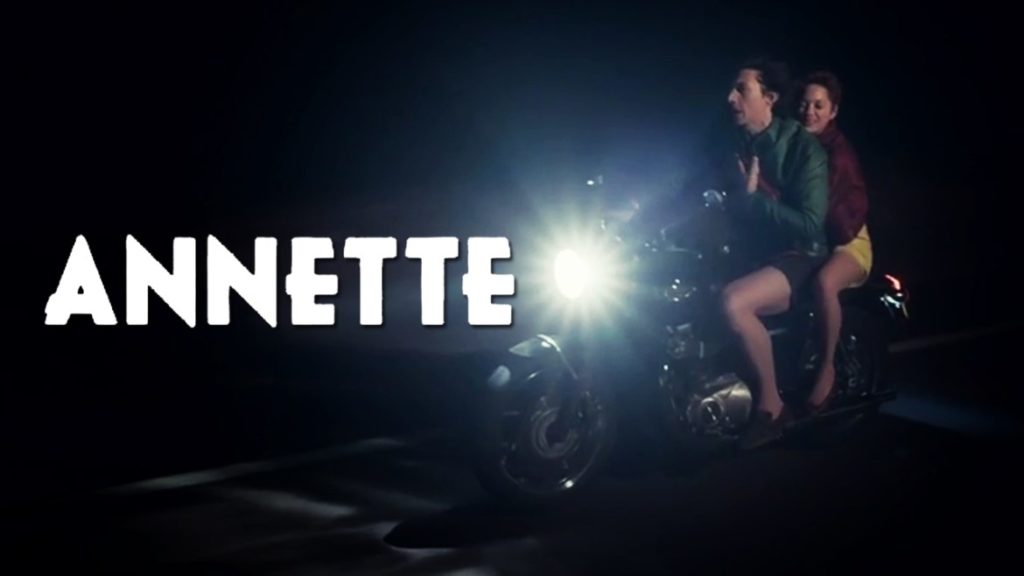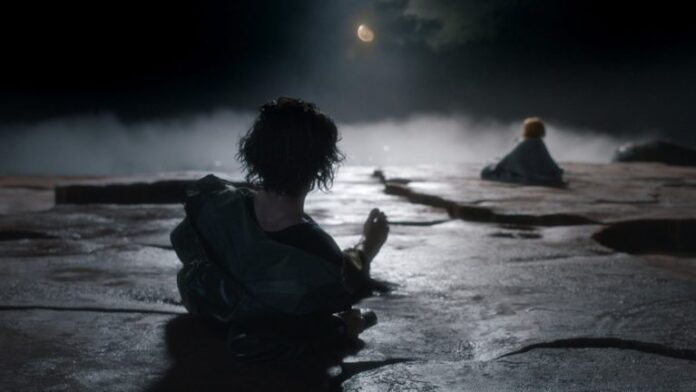
Every so often, there’s a film that feels destined to become a cult classic. Something about the confidence in its weird, left-of-center presentation, or some kind of whole-hearted commitment to its strangeness or its niche that resonates with the right audiences at the right time.
And then, sometimes, there’s a film that seems like it’s begging for that cult status. A movie so clearly reveling in its own acquired taste, so openly self-aware, that it really doesn’t seem to care if anyone likes it at all.
“Annette” is definitely one of those films.
The story and music for “Annette” were conceived originally by the veteran, experimental-pop brother-duo Sparks, who have been recently experiencing a surge of renewed interest thanks to Edgar Wright’s documentary “The Sparks Brothers.”

Music and Film
By Brett Fieldcamp
Sponsored by True Sky Credit Union
Upon meeting director Leos Carax, who had used a Sparks track in his film “Holy Motors,” the brothers decided to adapt the work, which had until then been intended as a concept album and stage show, into a musical movie extravaganza that would let Carax’s visual imagination go wild.
The result is not so much a “musical” in any classic cinematic terms, but a full-on, no-holds-barred opera. The director and musicians open the proceedings themselves alongside the cast, not yet in costume or in character, and announce that what you’re about to see is not in any way your usual Hollywood song-and-dance singalong.
The characters sing their every thought and every emotion, often in clear, blatant lyrics proclaiming who they are, how they feel, and what purpose they are serving in the story. The emotions and the drama are grand and heightened. The music is mostly symphonic and, at times, almost without melody, as the orchestra follows the characters’ lines. All of these choices can feel strange and melodramatic and far too over-the-top for a traditional musical film, but they are all part of the language of opera.
Opera is an art form that has seemingly never fully seen embrace by American audiences. It’s always been viewed as something exclusive to the high-brow, luxury culture of the rich and intellectual, and unattainable to the minds and sensibilities of the average American. It makes sense, then, that the tropes and trends that normally define the form have remained largely “European” in their presentation.
With “Annette,” those tropes have been put on full display in order to tell a story that is so American, so hyper-modern, that it feels immediately jarring to be receiving the subject matter through such a foreign and traditional form.
Beneath the Wagnerian presentation, the story of “Annette” is one of celebrity worship, mass media, and child exploitation throughout the landscape of modern American entertainment. A chorus sings accompaniment to interstitial “celebrity gossip” news breaks. Crowds of paparazzi move and yell with choreography and rhyme. There’s even a Super Bowl (or rather, “Hyper Bowl,” because, trademark.)
The two lead performers, Adam Driver and Marion Cotillard, both commit so fully and completely, not just to their characters and the near-ridiculousness of the melodrama, but to the singing required as well. Driver showcases a perfectly capable baritone, well-suited to his tragic and possibly sinister archetype, but Cotillard’s soaring, angelic voice legitimizes the opera of it all better than any other factor of the filmmaking.
Driver is a shock-comedy stand-up. Cotilliard is a world-renowned opera singer, famous for her on-stage deaths. The implication is clear: Comedy and Tragedy fall in love and birth a child that is… well, different in ways that won’t be spoiled here.

There is for sure an unwavering goofiness throughout the entire (sometimes languid) two-and-a-half-hour runtime, but the performances, particularly Driver, are able to keep the story grounded within genuine humanity and emotion.
Some of the only times that the music stops cold are during the long passages of Driver’s comedian character on stage. His uncomfortable, manic-depressive monologues represent not only the finest acting work in the film but a clear declaration that he deserves his place among the most fearless and daring actors of his generation.
Ultimately, “Annette” is a difficult and challenging film, presumably by design, and it takes every opportunity it can find to antagonize its audience. But then, right at the very end, it uses its finale to lift the surrealist veil and reveal its stark, sad examination of exploitation and the way that our children inherit our trauma in clear daylight detail.
Sparks make strange, underground pop music. Carax makes impenetrable, delirious films. Together they’ve created something that will likely appeal to their established bases, and quite possibly no one else.
But if you give “Annette” a chance, if you turn yourself over to its unapologetic opera and its relentlessly celebrated strangeness, you’ll be rewarded with a darkly unique, sad, and timely tale of the weakness of reason in the face of imagination.
“Annette” is playing this week at Rodeo Cinema on Film Row before premiering on Amazon Prime Friday, August 20th.
Sustain our journalism by becoming a supporter
Oklahoma City Free Press is dedicated to providing high quality journalism that positively impacts our community. Click this linkto support our mission.
Last Updated August 18, 2023, 7:11 AM by Brett Dickerson – Editor
The post ‘Annette’ is a strange, compelling, and wholly American modern opera appeared first on Oklahoma City Free Press.




















